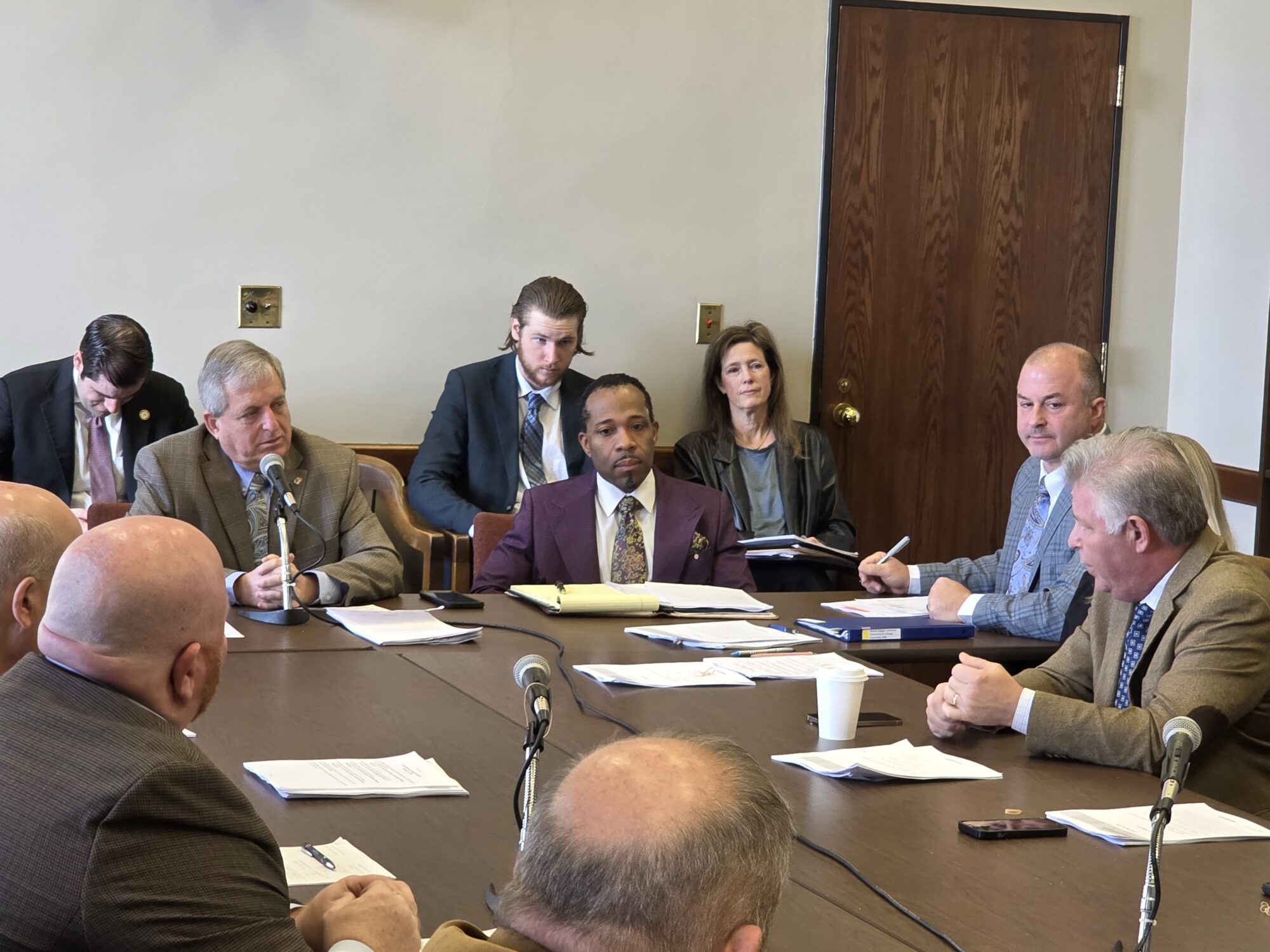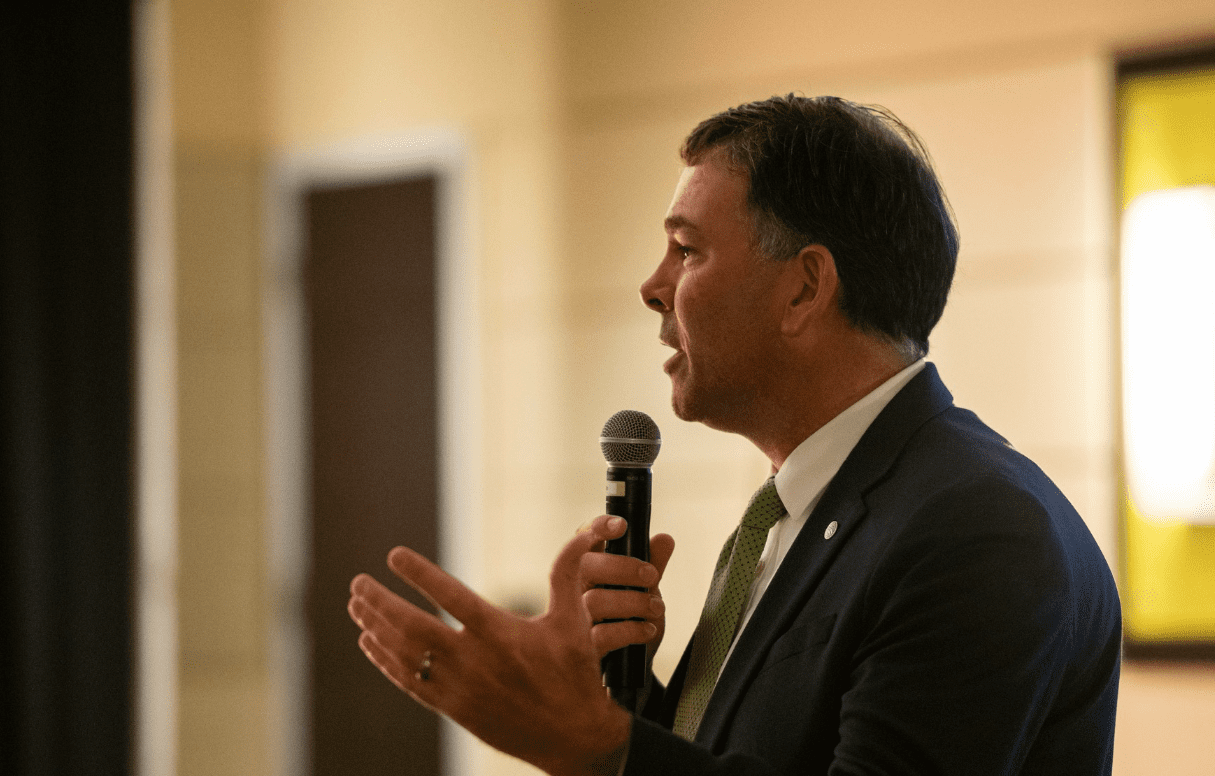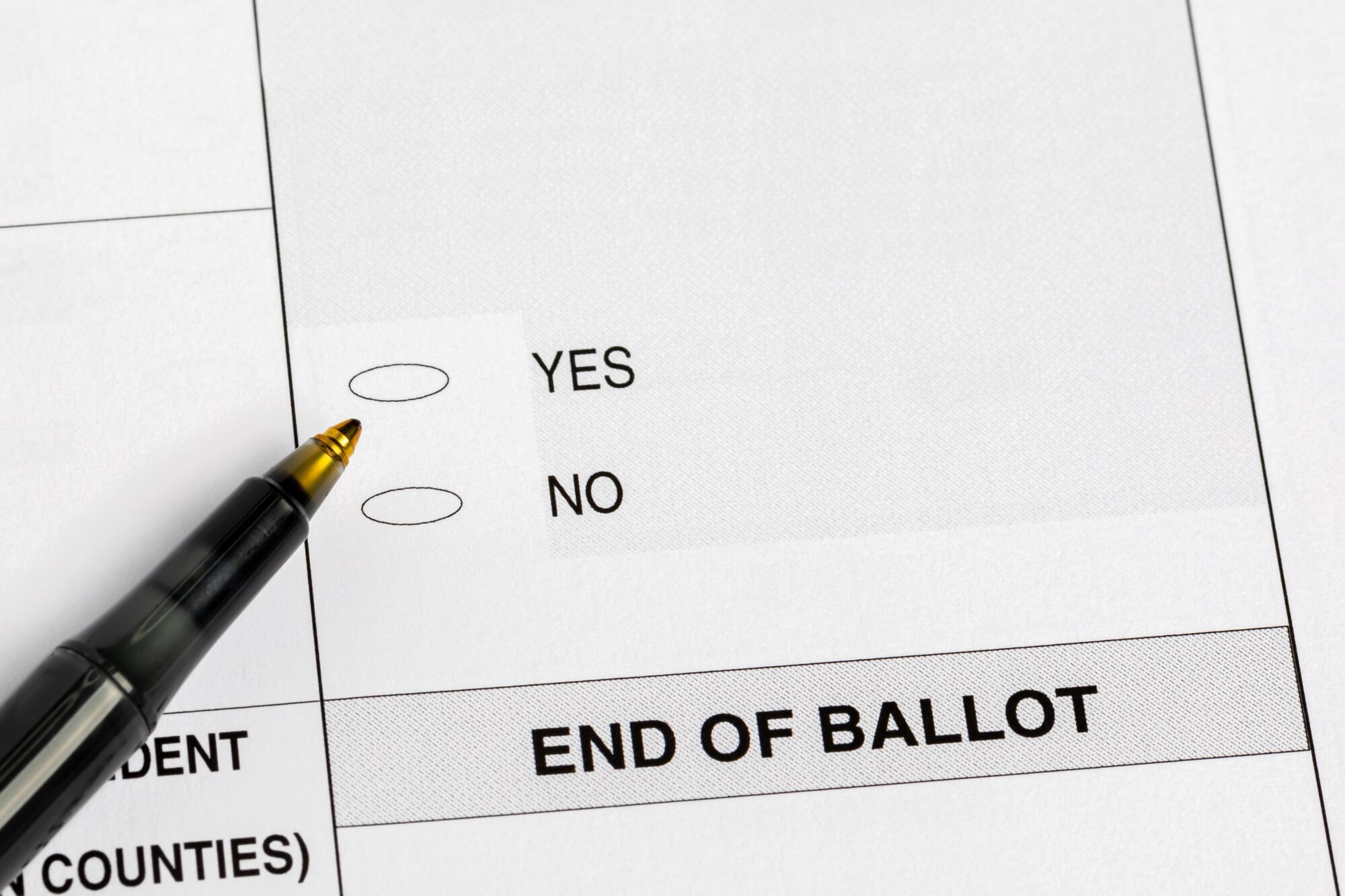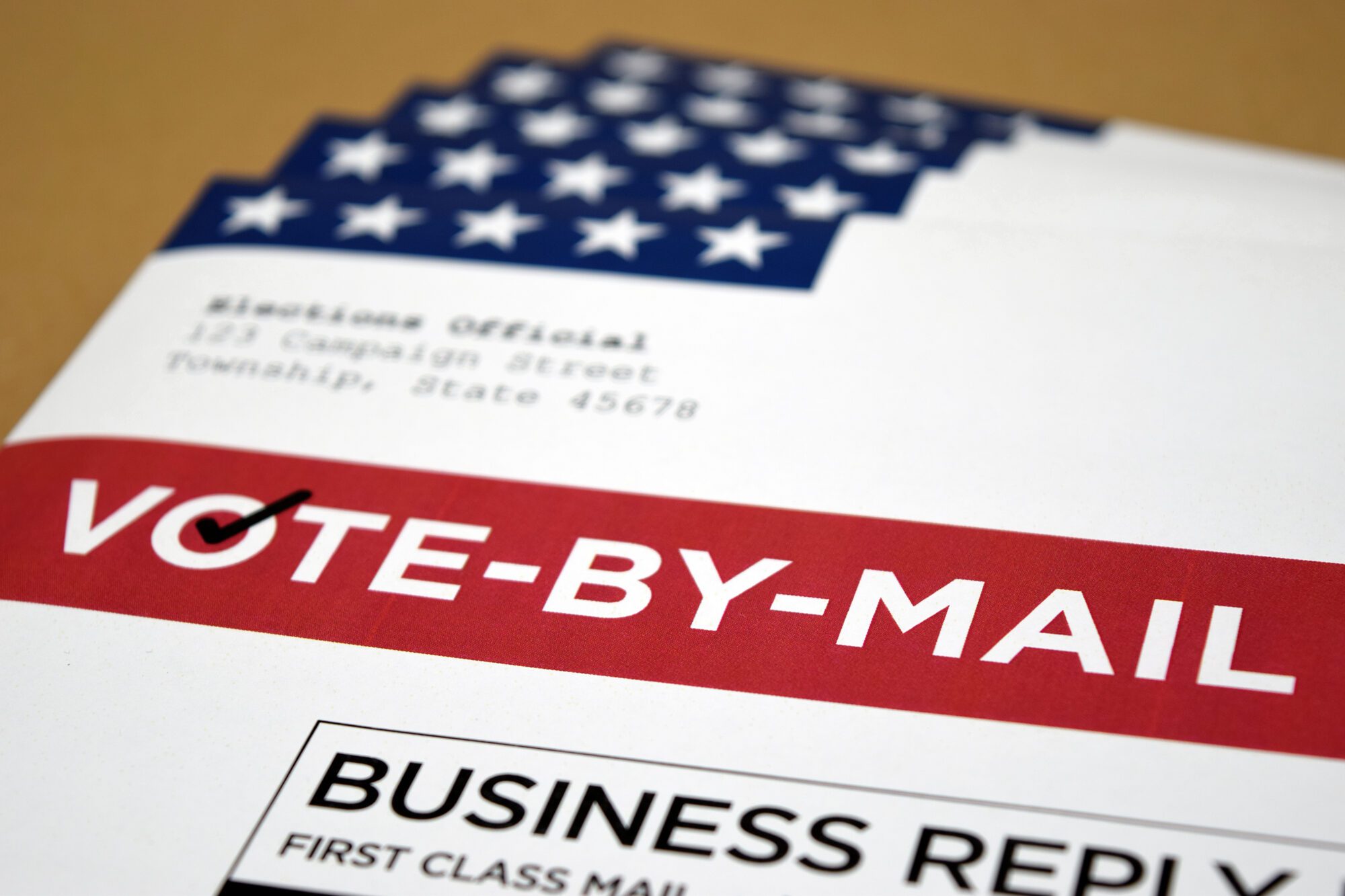
(Photo from Shutterstock)
- The President said elections “can never be honest” with mail-in balloting.
President Donald Trump said Monday on Truth Social that his administration will work toward eliminating mail-in ballots and certain kinds of voting machines.
“I am going to lead a movement to get rid of MAIL-IN BALLOTS, and also, while we’re at it, Highly ‘Inaccurate,’ Very Expensive, and Seriously Controversial VOTING MACHINES, which cost Ten Times more than accurate and sophisticated Watermark Paper, which is faster, and leaves NO DOUBT, at the end of the evening, as to who WON, and who LOST, the Election,” President Trump wrote.
The President said elections “can never be honest” with mail-in balloting, “and everybody, IN PARTICULAR THE DEMOCRATS, KNOWS THIS.”
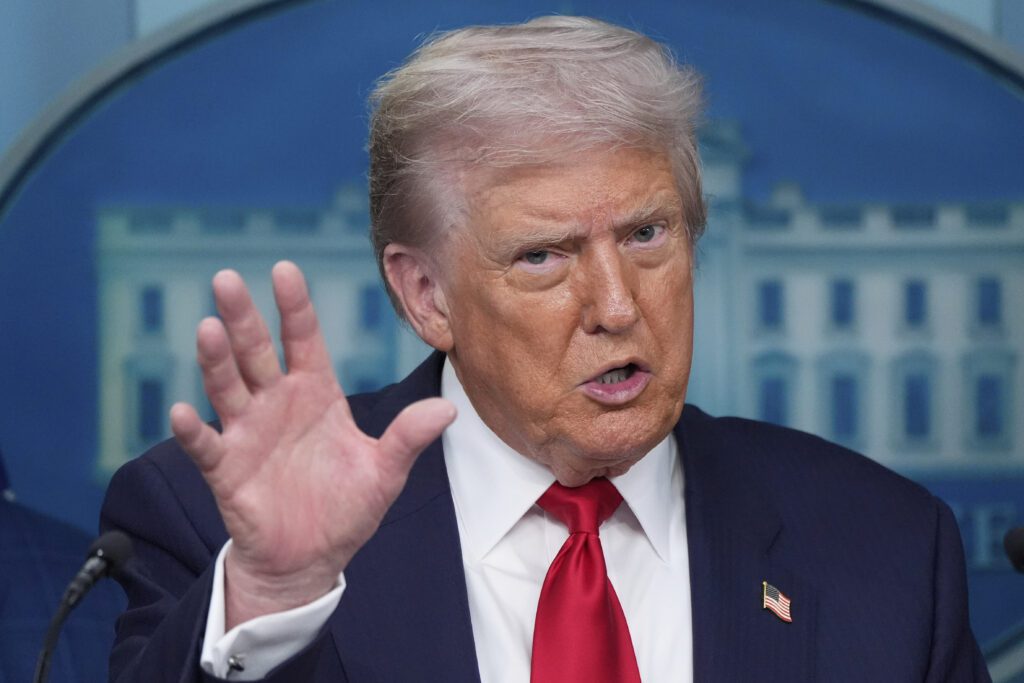
While mail-in ballots have traditionally provided a way for registered voters serving overseas in the military, working overseas, or who have a disability to remain a part of the constitutional process, some states have expanded access to mail-in ballots in recent years.
Trump added that the U.S. is the only country in the world to still offer mail-in ballots. However, at least 22 countries across the world still allow the practice in some form, including Canada, the United Kingdom, Germany, Poland, and Japan, to name a few.
Mississippi State Senator Jeremy England (R), chairman of the Senate Elections Committee, agrees mail-in ballots involve a level of uncertainty, since it is hard to prove that the name on the envelope is truly the person casting the ballot.
Additionally, mail-in ballots cause delays in providing accurate results on Election Day, given that it may take days or weeks to count and verify mail-in ballots.
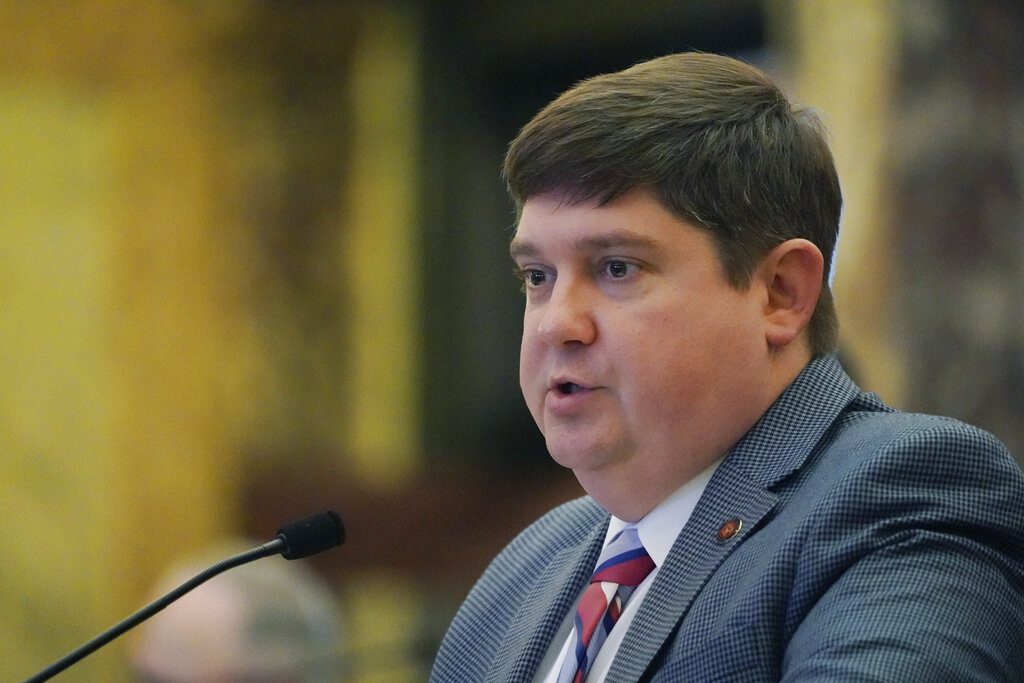
“I certainly think in-person voting is the safest and best way to vote, because the safeguards are better and results are quicker, so I look forward to seeing what suggestions come from this effort by the Trump Administration to at least curb mail-in ballots,” England told Magnolia Tribune on Monday. “However, I don’t see any way to completely end mail-in voting altogether, because we have members of our military overseas and people that work overseas, and we cannot just disenfranchise these citizens.”
England is also concerned for Mississippians who may be disabled or have other difficulties getting to a voting precinct on Election Day.
“I also think we have to consider individuals with disabilities and those that may be unable to get themselves to a precinct or to their clerk’s office. Election integrity is a balancing process in this way,” England added.
State Rep. Noah Sanford (R), chair of the Mississippi House Apportionment and Elections Committee, agrees with Trump that mail-in ballots are not perfect.
“Unlike many other states, Mississippi has never permitted universal mail-in voting, and we will not as long as I am chairman,” said Sanford.

To cast a mail-in ballot in Mississippi, a registered voter has to show cause, such as serving or working overseas, or proof of a disability.
“Voting by mail is the least secure method of voting,” Sanford added.
Sanford also cited a recent decision by the U.S. Circuit Court of Appeals, which found that Mississippi’s current law on mail-in voting is unlawful. The state’s current law mandates mail-in ballots have to be postmarked by or on the day of the election and be received within five business days of the election, according to the Secretary of State.
“The Fifth Circuit Court of Appeals recently held that allowing mail votes to be received after Election Day violates federal law, and I hope the United States Supreme Court will review that case and uphold the ruling of the Fifth Circuit,” Sanford said.
A request for comment from Secretary of State Michael Watson’s office was not immediately returned Monday.
UPDATE:
Secretary of State Michael Watson sent the following statement regarding Trump’s comments after this article was originally published:
“Couldn’t be more appreciative and supportive of President Trump’s focus on election integrity. We’ve been ahead of the national curve here in Mississippi and will vigorously continue our efforts. Regarding specifics mentioned in the President’s social media post, we will wait to see the details before commenting. That said, election procedure decisions have and should continue to be made at the state level, and I trust President Trump will keep these important principles in mind as he crafts future executive orders.”

